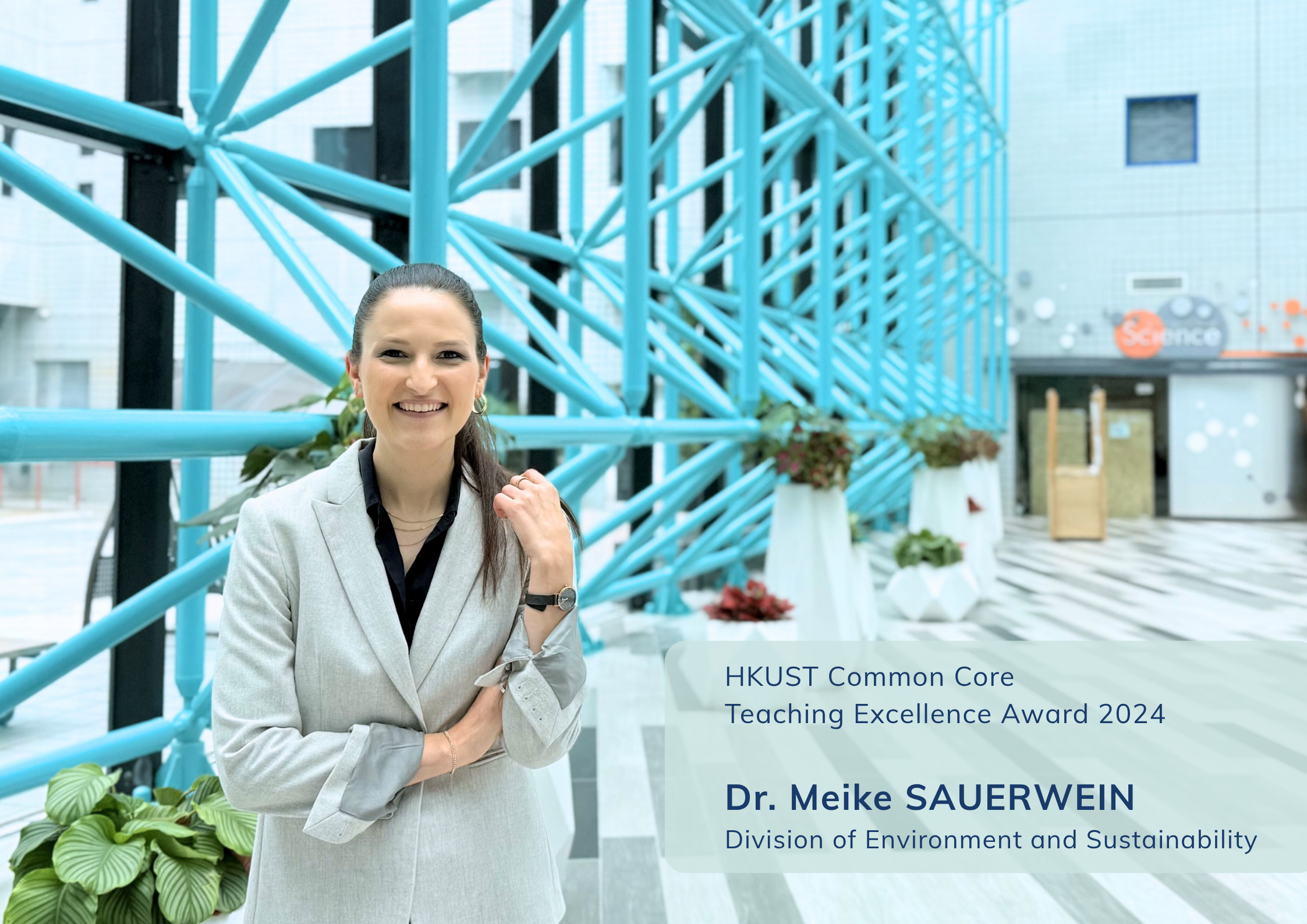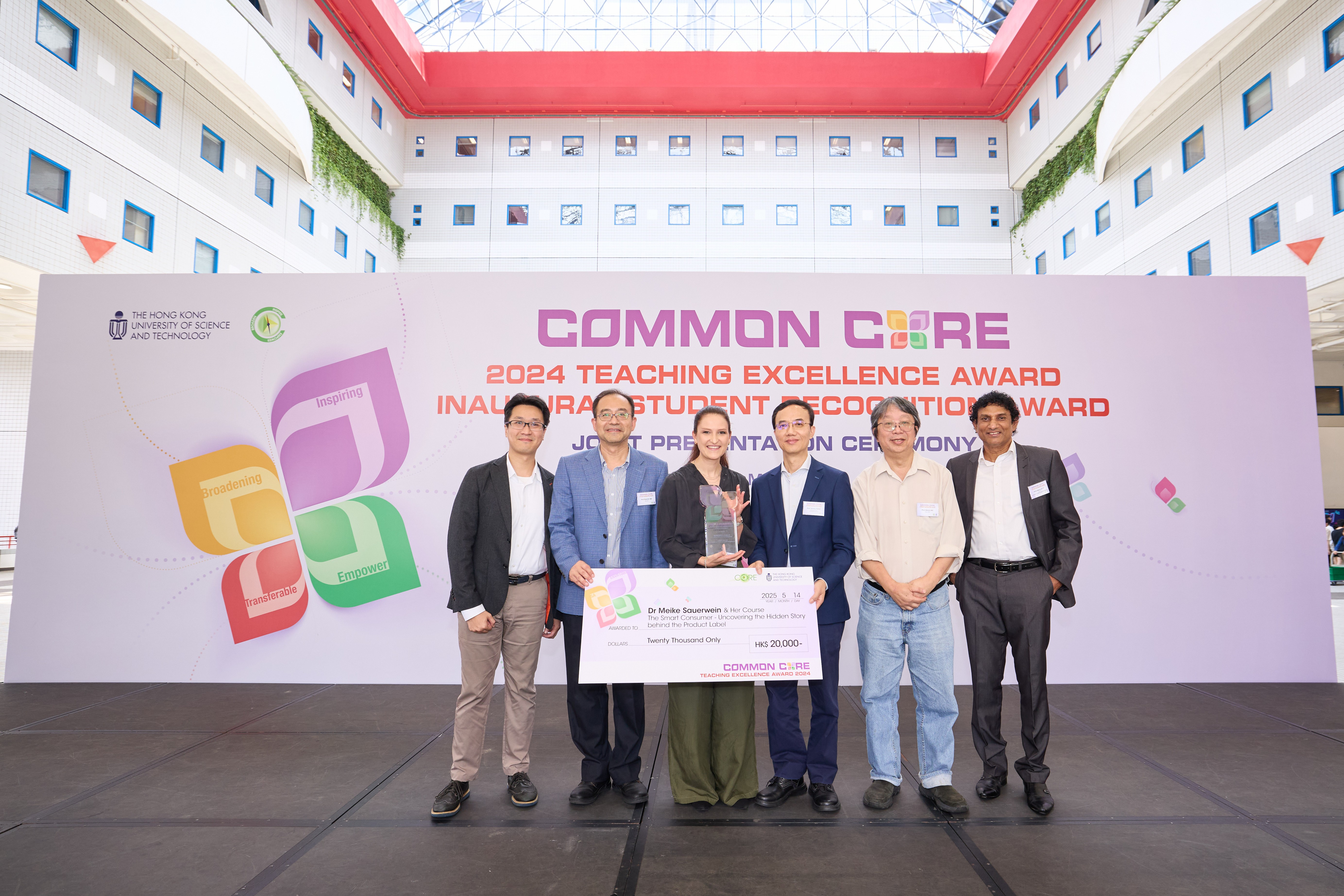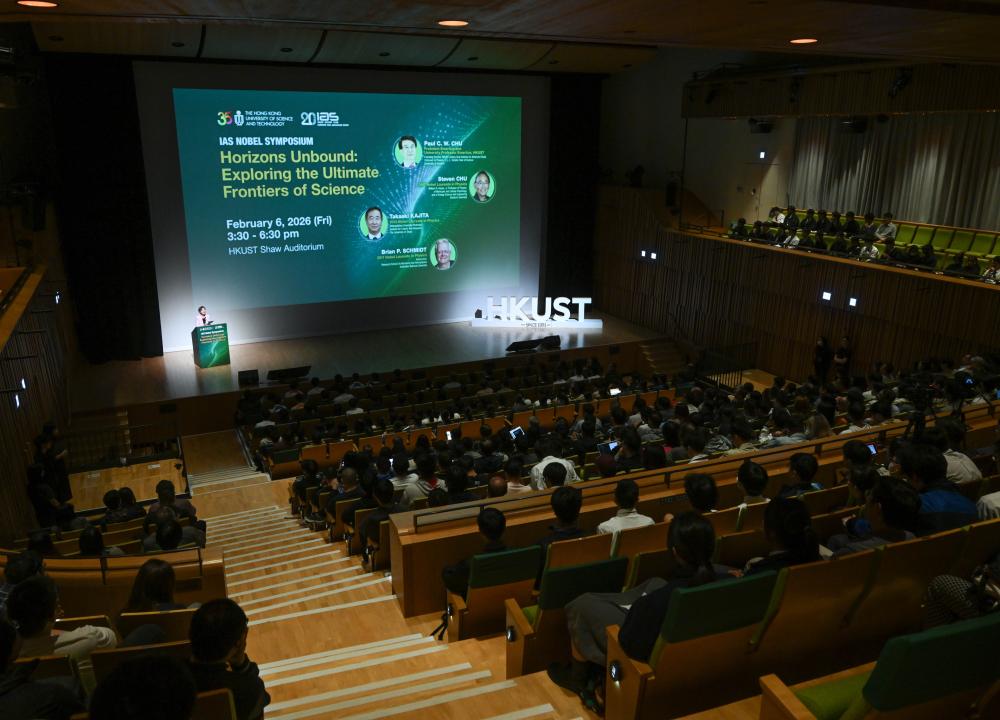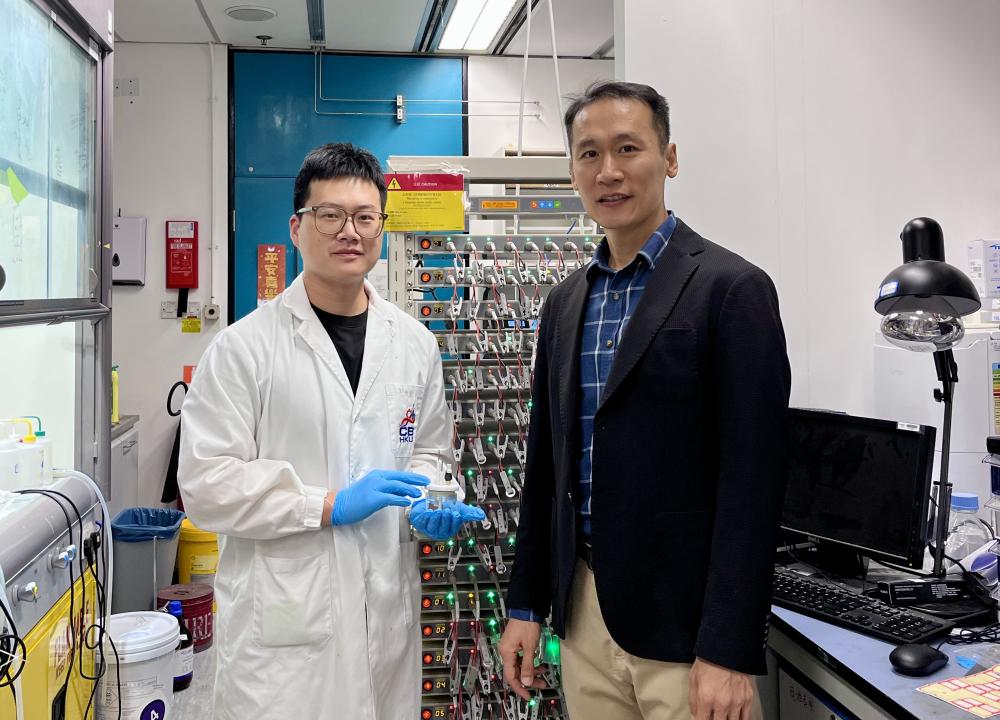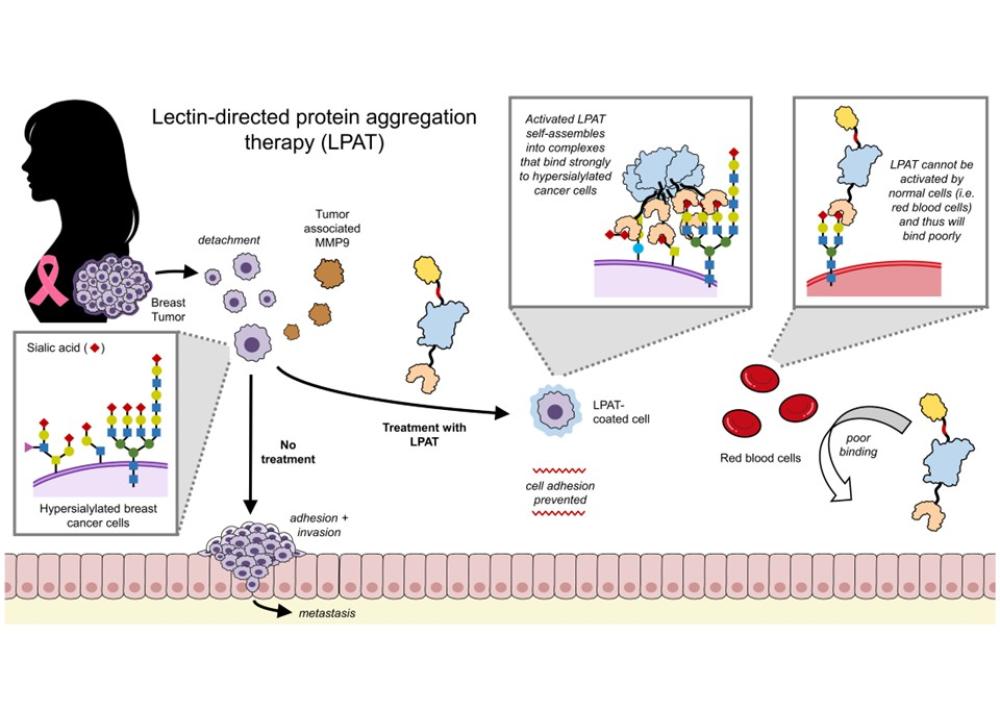Sparking Sustainable Consciousness: A Journey of Teaching and Transformation
In the vibrant halls of The Hong Kong University of Science and Technology (HKUST), Dr. Meike SAUERWEIN, Lecturer of the Division of Environment and Sustainability, is igniting a quiet revolution. Her course, ENVR 1080: The Smart Consumer – Uncovering the Hidden Story Behind the Product Label, is far more than a typical sustainability course—it is an eye-opening experience that makes students rethink their everyday purchases and their ripple effects on the environment and society.
A Vision for a Better Future
Dr. Sauerwein’s approach to teaching goes well beyond the ordinary. With her background in environmental chemistry and ecotoxicology, she brings a deep passion for sustainability to the classroom. Her mission is simple and clear: “I want students to understand that their happiness shouldn’t come at the expense of someone else’s misery,” she says. By uncovering the hidden stories of environmental harm and human exploitation behind glossy marketing and labels, she is teaching students to see the world—and their role in it—differently.
Her vision goes beyond merely teaching facts. “Sustainability isn’t about saving the planet—it’s about recognizing how our choices affect others around the world,” she explains. “Just saving paper in the toilet isn’t going to save the world. It’s a start, but meaningful changes come from understanding the full impact of our consumption and focusing on those actions that have the highest environmental and social footprint.” Dr. Sauerwein’s humor underscores a deeper truth that change begins with awareness, and awareness begins with education.
“Every purchase is a choice, every choice has a consequence, and every individual has the power to make a difference,” she says.
Creative Tools for Conscious Learning
Dr. Sauerwein’s classroom is not only a space of critical reflection, but also of hope and empowerment. Through humor, creativity, and hands-on activities, she makes even the most complex topics approachable.
Take a surprise chocolate egg which hides a plastic toy inside, for example—a seemingly innocent treat—becomes a powerful teaching tool in Dr. Sauerwein’s classroom. Students analyze its flashy marketing, disposable packaging, and fleeting appeal. “It’s a microcosm of consumerism,” she explains. “It may seem small, but it reflects bigger questions about consumerism and sustainability.”
Dr. Sauerwein’s creativity is nothing short of inspiring. She has developed teaching tools like the Milk Co. board game, which maps the life cycle of milk to show its hidden environmental costs. Her Hong Kong-specific carbon calculator app helps students measure their carbon footprints and explore feasible ways to reduce them.
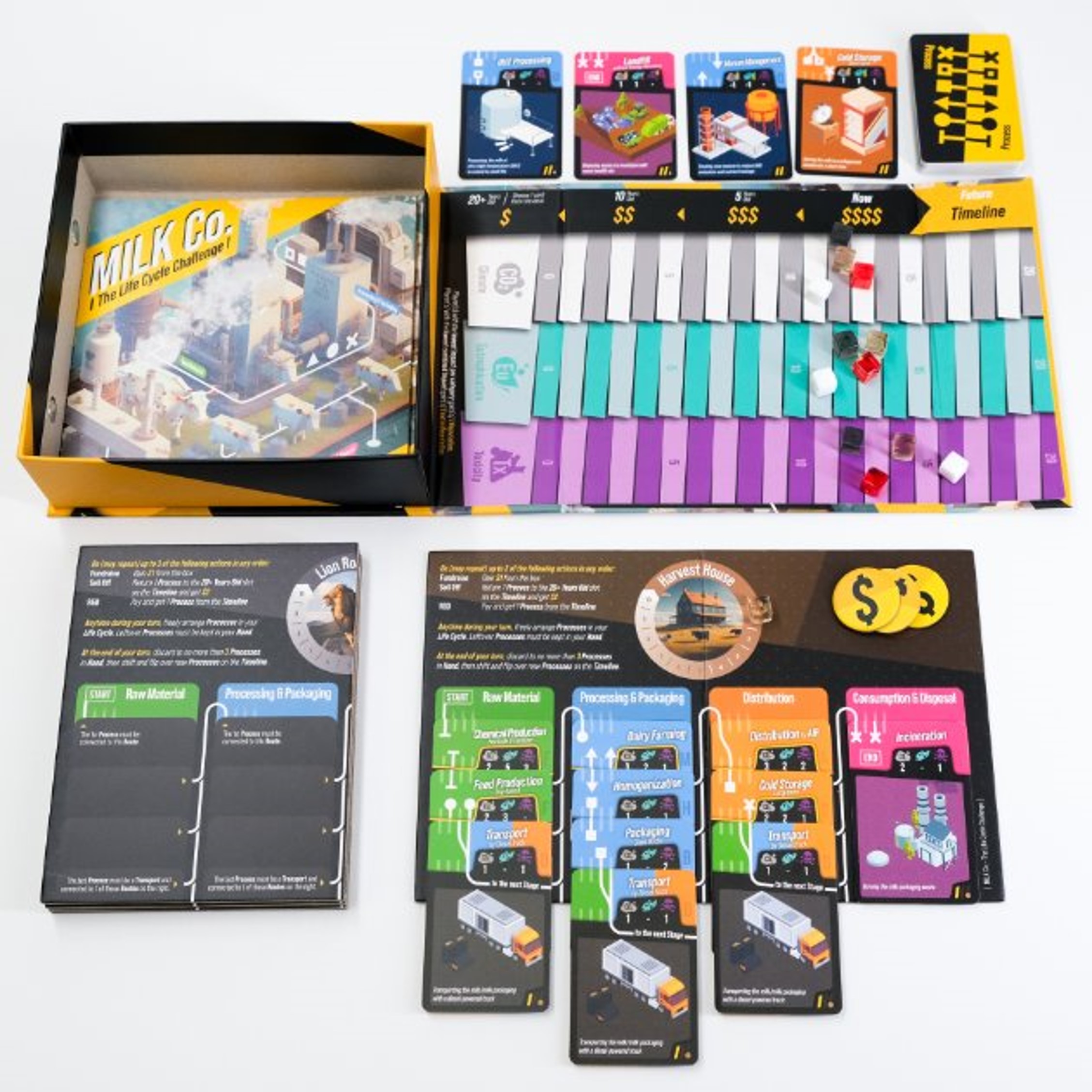
One of the most striking tools she uses in class, is the “slavery footprint calculator,” a calculator that reveals the human cost of production. This often shocks students into reflection. “They are confronted with the reality that their favorite gadgets or accessories might involve exploitative labor,” she says. “It’s about connecting the dots and realizing that every action has consequences.” These tools ensure her students leave with not just knowledge, but a sense of empowerment.
Empowering a Generation of Change-Makers
More than just teaching sustainability—Dr. Sauerwein is empowering future leaders to tackle the world’s biggest challenges. Her course is a journey through the complexities of consumer choices, helping students connect individual actions to larger systems like business practices and government policies.
Her interdisciplinary approach makes sustainability accessible to everyone. “Sustainability isn’t just for environmental scientists. My students come from engineering, business, and social sciences. I want them to see how sustainability intersects with their future careers—whether they are designing products, managing companies, or building infrastructure.”
One moment of revelation for many students comes from her pricing calculator (inspired by a French company), which shows how paying fair wages to farmers would only add a few dollars to a product’s cost. “It’s an eye-opener,” she says. “They start to see how small shifts in consumer behavior can make a huge difference.”
Dr. Sauerwein is also refreshingly honest about the challenges of driving change. “Not every student will become a sustainability champion overnight,” she admits. “But if they start questioning, if they begin to think differently about their consumption, that’s a start.”
Beyond the Award
Dr. Sauerwein’s efforts have not gone unnoticed. Winning the HKUST Common Core Teaching Excellence Award this year is a testament to her impact, though for her, it is not about the recognition. “It’s not about the award,” she says with a smile. “It’s about inspiring students to think critically about their role in the global ecosystem.”
Dr. Sauerwein’s perspective is shaped by her experiences growing up in Germany and now teaching in Hong Kong. She has seen firsthand how different cultures approach consumption and believes that sustainable change starts with understanding our interconnectedness.
For a start, Dr. Sauerwein’s work exemplifies the power of education to drive transformation. As her course demonstrates, education can be more than just a curriculum—it is a movement that challenges students to rethink their roles in the global ecosystem and empowers them to make meaningful changes.










